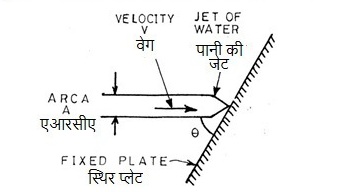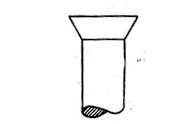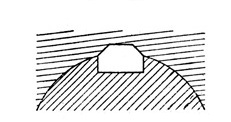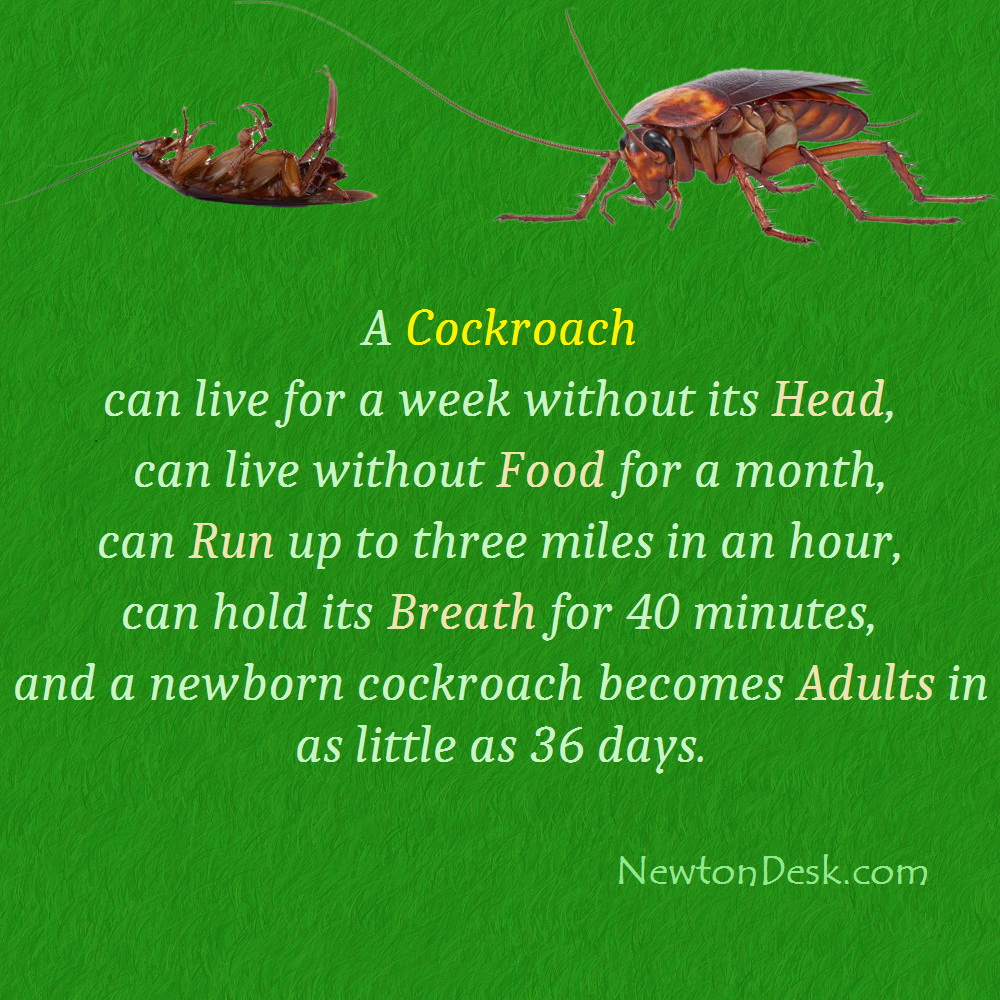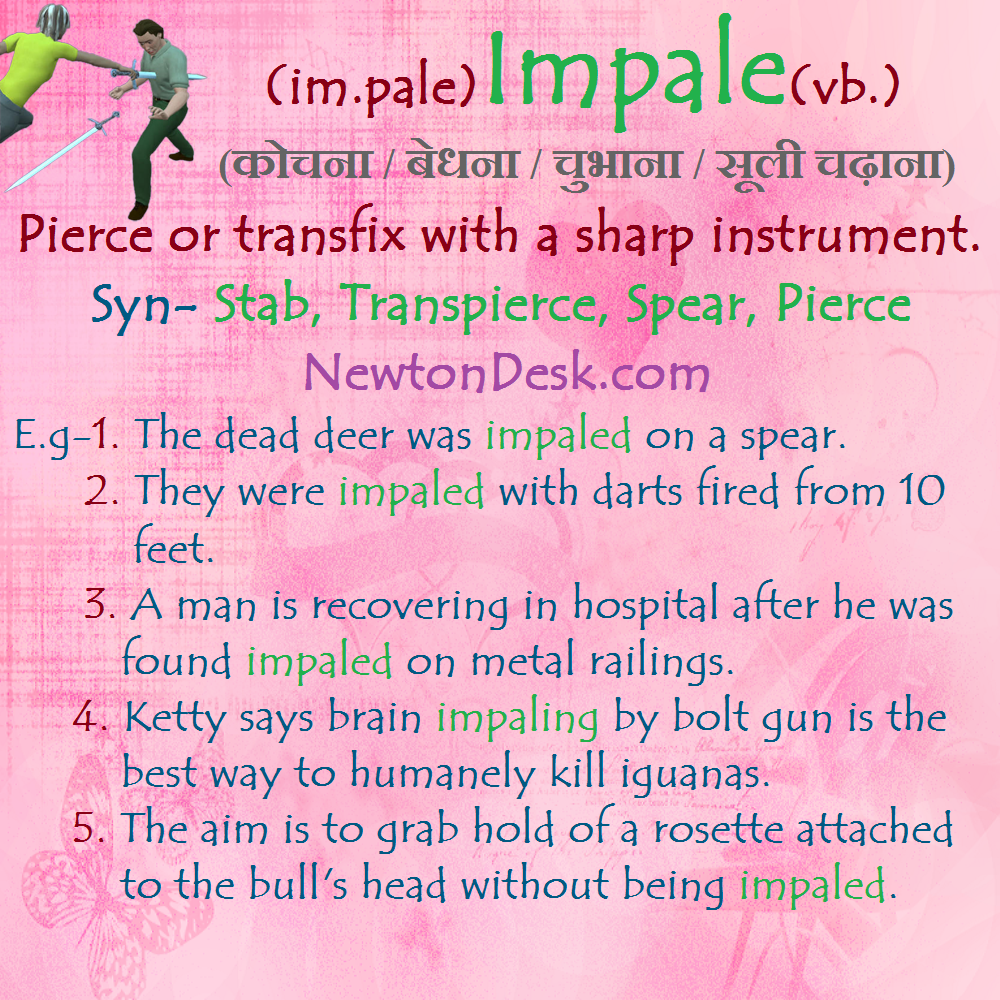SSC Junior Engineers (JE) Exam – 2016 “held on 1st March 2017” Afternoon Shift (General Engineering)
Q 1: If ‘L’ is the span of a light suspension bridge, whose, each cable carries total weight (w) and the central dip is ‘y’, the horizontal pull at each support is _____.
Options:
1) wL/4y
2) wL/8y
3) wL/2y
4) wL/y
Answer: wL/8y
Q 2: The vehicle moving on a level circular path will exert pressure such that _____.
Options:
1) the reaction on the outer wheels will be more
2) the reaction on the inner wheels will be more
3) the reaction on the inner wheels as well as on the outer wheels will be equal
4) it depends on the speed
Answer: the reaction on the outer wheels will be more
Q 3: Which one of the following laws is not applicable for a simple pendulum?
Options:
1) the time period does not depend on its magnitude
2) the time period is proportional to its length
3) the time period is proportional to square root of its length
4) the time period is inversely proportional to square root of its acceleration due to gravity
Answer: the time period is proportional to square root of its length
Q 4: In order to double the period of a simple pendulum _____.
Options:
1) the mass of its bob should be doubled
2) the mass of its bob should be quadrupled
3) its length should be doubled
4) its length should be quadrupled
Answer: its length should be quadrupled
Q 5: A body is vibrating at 10 vibrations/second in Simple Harmonic Motion of 10 cm amplitude. The maximum velocity in cm/sec can be _____.
Options:
1) 100π
2) 50π
3) 200π
4) 100
Answer: 200π
Q 6: The sum of kinetic and potential energy of a falling body _____.
Options:
1) is constant at all points
2) varies from point to point
3) is maximum at starting and goes on increasing
4) is maximum at starting and goes on decreasing
Answer: is constant at all points
Q 7: If two bodies, one light and other heavy, have equal kinetic energy, which one has a greater momentum?
Options:
1) the heavy body
2) the light body
3) both have equal momentum
4) unpredictable
Answer: the heavy body
Q 8: A bucket of water weighing 10 kg is pulled up from a 20 m deep well by a rope weighing 1 kg/m length, then the work done is _____.
Options:
1) 200 kg-m
2) 400 kg-m
3) 500 kg-m
4) 600 kg-m
Answer: 400 kg-m
Q 9: Which of the following is an example of a body undergoing translational equilibrium?
Options:
1) a body at rest on a table
2) a body travelling in a circular path at a constant speed
3) a body rotating with constant angular speed about an axis
4) a body sliding down a frictionless inclined plane
Answer: a body at rest on a table
Q 10: A boy is swinging on a swing. If another boy sits along with him without disturbing his motion, then the time period of swing will _____.
Options:
1) increase
2) decrease
3) be doubled
4) remain the same
Answer: remain the same
Q 11: The type of motion when the acceleration is proportional to displacement is called _____.
Options:
1) translation
2) rotational
3) gyroscopic
4) simple harmonic
Answer: simple harmonic
Q 12: The escape velocity of a body on earth _____.
Options:
1) increases with the increase of its mass
2) decreases with the increase of its mass
3) remains unchanged with variation of mass
4) varies as the square of the change in mass
Answer: remains unchanged with variation of mass
Q 13: The velocity of the satellite in an orbit close to earth’s surface depends on _____.
Options:
1) radius of the orbit only
2) acceleration due to gravity only
3) square root of product of radius of the orbit and acceleration due to gravity
4) product of radius of the orbit and gravitational constant
Answer: square root of product of radius of the orbit and acceleration due to gravity
Q 14: A circular disc rolls down an inclined plane, the fraction of its total energy associated with its rotation is _____.
Options:
1) 1/2
2) 1/3
3) 1/4
4) 2/3
Answer: 1/3
Q 15: An object weighs 60 gm in air, 50 gm in water and 40 gm in oil. Then the specific gravity of the oil will be _____.
Options:
1) 0.25
2) 1
3) 1.5
4) 2
Answer: 2
Q 16: The value of coefficient of velocity compared to coefficient of discharge _____.
Options:
1) is less
2) is more
3) has no relation
4) is the same
Answer: is more
Q 17: Property of a fluid by which molecules of different kinds of fluids are attracted to each other is called _____.
Options:
1) adhesion
2) cohesion
3) viscosity
4) compressibility
Answer: adhesion
Q 18: The depth of water below the spillway and after hydraulic jump are 1 m and 6 m respectively. The head loss will be _____.
Options:
1) 1.04 m
2) 5 m
3) 1.7 m
4) 2.05 m
Answer: 1.04 m
Q 19: If no resistance is encountered by displacement, such a substance is known as _____.
Options:
1) fluid
2) water
3) gas
4) ideal fluid
Answer: ideal fluid
Q 20: Head loss in turbulent flow in a pipe _____.
Options:
1) varies directly as velocity
2) varies inversely as square of velocity
3) varies approximately as square of velocity
4) depends upon orientation of pipe
Answer: varies approximately as square of velocity
Q 21: The force exerted by the jet on fixed plate shown in the figure below is equal to:
Options:
1) AV2 sin θ
2) ρAV2 sin θ
3) ρAV2 cos θ
4) AV2 tan θ
Answer: ρAV2 sin θ
Q 22: A weir system in which the downstream water level of the weir nappe is higher than the crest is called _____.
Options:
1) submerged
2) overflowing
3) broad-crested
4) cipoletti
Answer: submerged
Q 23: For starting an axial flow pump, its delivery valve should be _____.
Options:
1) closed
2) open
3) depends on starting condition and flow desired
4) could be either open or closed
Answer: open
Q 24: Equation of continuity results from the principal of conservation of _____.
Options:
1) energy
2) flow
3) mass
4) momentum
Answer: mass
Q 25: When a piping system is made up primarily of friction head and very little of vertical lift, then pipe characteristics should be _____.
Options:
1) horizontal
2) nearly horizontal
3) very steep
4) first rise and then fall
Answer: nearly horizontal
[sociallocker]
Q 26: The hydraulic mean depth for a circular pipe of diameter ‘d’ running full is equal to _____.
Options:
1) d
2) d/3
3) d/2
4) d/4
Answer: d/4
Q 27: In a centrifugal pump, the liquid enters the pump from _____.
Options:
1) the top
2) the bottom
3) the centre
4) from sides
Answer: the centre
Q 28: Head loss in a flowing fluid is experienced due to _____.
- friction at surface
B. change of direction
C. change of section of passage
D. obstruction in passage
Options:
1) only A
2) only B
3) only B and C
4) A, B, C and D
Answer: A, B, C and D
Q 29: High specific speed of turbine implies that it is _____.
Options:
1) propeller turbine
2) Francis turbine
3) Impulse turbine
4) Francis turbine or impulse turbine
Answer: propeller turbine
Q 30: One dimensional flow is _____.
Options:
1) restricted to flow in a straight line
2) uniform flow
3) one which neglects changes in a transverse direction
4) the most general flow
Answer: one which neglects changes in a transverse direction
Q 31: Specific speed of a turbine depends upon _____.
Options:
1) speed, power and discharge
2) discharge and power
3) speed and head
4) speed, power and head
Answer: speed, power and head
Q 32 If a mouthpiece is running full at the outlet, the vacuum at vena-contracta _____.
Options:
1) increases velocity of jet.
2) decreases velocity of jet
3) decreases the discharge
4) decreases the value of coefficient of contraction
Answer: increases velocity of jet.
Q 33: When a fluid flows in concentric circles, it is known as _____.
Options:
1) free circular motion
2) free rotational motion
3) free spiral vortex flow
4) free cylindrical vortex flow
Answer: free cylindrical vortex flow
Q 34: Maximum impulse will be developed in hydraulic ram when _____.
Options:
1) when valve closes suddenly
2) supply pipe is long
3) supply pipe is short
4) ram chamber is large
Answer: when valve closes suddenly
Q 35: Critical-depth meter is used to measure _____.
Options:
1) discharge in an open channel
2) hydraulic jump
3) depth of flow in channel
4) depth of channel
Answer: discharge in an open channel
Q 36: Medium specific speed of a pump implies that it is _____.
Options:
1) centrifugal pump
2) mixed flow pump
3) axial flow pump
4) axial flow pump or centrifugal pump
Answer: mixed flow pump
Q 37: The hydraulic grade line is _____.
Options:
1) always moving up
2) always moving down
3) always above the energy grade line
4) the velocity head below the energy grade line
Answer: the velocity head below the energy grade line
Q 38: The ratio of depth of bucket for a Pelton wheel to the diameter of jet is of the order of _____.
Options:
1) 1
2) 1.2
3) 1.5
4) 1.8
Answer: 1.2
Q 39: The contraction of area for flow through orifice in tank depends on _____.
A. shape of orifice
B. size of orifice
C. head in tank
Options:
1) only A
2) only A and B
3) only A and C
4) A, B and C
Answer: A, B and C
Q 40: The flow at critical depth in an open channel is _____.
Options:
1) maximum
2) minimum
3) zero
4) half of normal flow
Answer: maximum
Q 41: In Kaplan turbine runner, the number of blades is generally of the order _____.
Options:
1) 2 – 4
2) 4 – 8
3) 8 – 16
4) 16 – 24
Answer: 4 – 8
Q 42: Air vessels in reciprocating pump are used to _____.
Options:
1) smoothen flow
2) reduce acceleration to minimum
3) increase pump efficiency
4) save pump from cavitation
Answer: reduce acceleration to minimum
Q 43: A hydraulic intensifier normally consists of _____.
Options:
1) two cylinders, two rams and a storage device
2) a cylinder and a ram
3) two co-axial rams and two cylinders
4) a cylinder, a piston, storage tank and control valve
Answer: two co-axial rams and two cylinders
Q 44: Cavitation is caused by _____.
Options:
1) high velocity
2) high pressure
3) weak material
4) low pressure
Answer: low pressure
Q 45: Which of the following pumps is used for pumping viscous fluids?
Options:
1) centrifugal pump
2) screw pump
3) reciprocating pump
4) jet pump
Answer: screw pump
Q 46: Steel whose elements are used for the purpose of modifying the mechanical properties of plain carbon steel is called _____.
Options:
1) Alloy steel
2) Invar
3) Stainless steel
4) High speed steel
Answer: Alloy steel
Q 47: Alloy steel containing 36% nickel is called _____.
Options:
1) Invar
2) Stainless steel
3) High speed steel
4) None of these
Answer: Invar
Q 48: Carbon steel is _____.
Options:
1) produced by adding carbon in steel
2) an alloy of iron and carbon with varying quantities of phosphorus and sulphur
3) purer than the cast iron
4) None of these
Answer: an alloy of iron and carbon with varying quantities of phosphorus and sulphur
Q 49: Percentage of carbon in steel is _____.
Options:
1) 0.1% to 0.8%
2) 0.35% to 0.45%
3) 1.8% to 4.2%
4) 0.1% to 1.5%
Answer: 0.1% to 1.5%
SSC Junior Engineer Exam Paper (http://www.newtondesk.com)
Q 50: Hardness of steel depends on _____.
Options:
1) amount of cementite it contains
2) amount of carbon it contains
3) contents of alloying elements
4) method of manufacture of steel
Answer: amount of carbon it contains
Q 51: _____ is added to raise the yeild point of low carbon steel.
Options:
1) Silicon
2) Carbon
3) Phosphorous
4) Sulphur
Answer: Phosphorous
Q 52: An alloy steel contains _____.
Options:
1) more than 0.5% Mn and 0.5% Si
2) less than 0.5% Mn and 0.5% Si
3) more than 0.35% Mn and 0.5% Si
4) less than 0.35% Mn and 0.5% Si
Answer: more than 0.5% Mn and 0.5% Si
Q 53: Alloy steel as compared to carbon steel is more _____.
A. tough
B. b
C. fatigue resistance
Options:
1) only A
2) only B
3) only C
4) None of these
Answer: None of these
Q 54: Steel which destroys by burning is called _____.
Options:
1) Alloy steel
2) Carbon steel
3) Silicon steel
4) Killed steel
Answer: Killed steel
Q 55: In steel, main alloy causing corrosion resistance is _____.
Options:
1) Manganese
2) Vanadium
3) Chromium
4) Cobalt
Answer: Chromium
Q 56: The crest diameter of a screw thread is same as _____.
Options:
1) major diameter
2) minor diameter
3) pitch diameter
4) core diameter
Answer: major diameter
Q 57: The function of a washer is to _____.
Options:
1) provide cushioning effect
2) provide bearing area
3) absorb shocks and vibrations
4) provide smooth surface in place of rough surface
Answer: provide bearing area
Q 58: The rivet for general purpose shown in the figure below is:
Options:
1) snap
2) pan
3) counter sunk
4) flat
Answer: counter sunk
Q 59: The key shown in the figure below is:
Options:
1) Lewis key
2) Kennedy key
3) Pin key
4) Barth key
Answer: Barth key
Q 60: Fibrous fracture occurs in _____.
Options:
1) ductile material
2) brittle material
3) elastic material
4) hard material
Answer: ductile material
Q 61: For tight leakage joints, following type of thread is best suited _____.
Options:
1) metric
2) buttress
3) NPT (National Pipe Threads)
4) acme
Answer: NPT (National Pipe Threads)
Q 62: A backing ring is used inside the pipe joint when making a _____.
Options:
1) butt weld
2) fillet weld
3) sleeve weld
4) socket weld
Answer: butt weld
Q 63: Which of the following pipe joints would be suitable for pipes carrying steam?
Options:
1) flanged
2) threaded
3) bell and spigot
4) expansion
Answer: expansion
Q 64: Antifriction bearings are:-
A. Sleeve bearings
B. Hydrodynamic bearings
C.Thin lubricated bearings
D. Ball and roller bearings
Options:
1) only A
2) only B and C
3) only C
4) None of these
Answer: None of these
Q 65: In V-belt drive, belt touches _____.
Options:
1) at bottom
2) at sides only
3) both at bottom and sides
4) could touch anywhere
Answer: at sides only
Q 66: In standard taper roller bearings, the angle of taper of outer raceway is _____.
Options:
1) 5°
2) 8°
3) 15°
4) 25°
Answer: 25°
Q 67: Basic shaft is one _____.
Options:
1) whose upper deviation is zero
2) whose lower deviation is zero
3) whose lower as well as upper deviations are zero
4) does not exist
Answer: whose upper deviation is zero
Q 68: Allen bolts are _____.
Options:
1) self-locking bolts
2) designed for shock load
3) used in aircraft application
4) provided with hexagonal depression in head
Answer: provided with hexagonal depression in head
Q 69: If the tearing efficiency of a riveted joint is 60%, then ratio of rivet hole diameter to the pitch of rivets is _____.
Options:
1) 0.2
2) 0.33
3) 0.4
4) 0.5
Answer: 0.4
Q 70: A riveted joint may fail due to:-
A. Shearing of the rivet
B. Shearing off the plate at an edge
C. Crushing of the rivet
Options:
1) only A
2) only B
3) only C
4) Any of A or B or C
Answer: Any of A or B or C
Q 71: The same volume of all gases would represent their _____.
Options:
1) densities
2) specific weights
3) molecular weights
4) gas characteristics constants
Answer: molecular weights
Q 72: Extensive property of a system is one whose value _____.
Options:
1) depends on the mass of the system, like volume
2) does not depend on the mass of the system, like temperature, pressure etc.
3) is not dependent on the path followed but on the state
4) is dependent on the path followed and not on the state
Answer: depends on the mass of the system, like volume
Q 73: In an isothermal process, the internal energy of gas molecules _____.
Options:
1) increases
2) decreases
3) remains constant
4) may increase/decrease depending on the properties of gas
Answer: remains constant
Q 74: The more effective way of increasing efficiency of Carnot engine is to _____.
Options:
1) increase higher temperature
2) decrease higher temperature
3) increase lower temperature
4) decrease lower temperature
Answer: decrease lower temperature
Q 75: Under ideal conditions, isothermal, isobaric, isochoric and adiabatic processes are _____.
Options:
1) static processes
2) dynamic processes
3) quasi-static processes
4) stable processes
Answer: quasi-static processes
Q 76: Total heat of a substance is also known as _____.
Options:
1) internal energy
2) entropy
3) thermal capacity
4) enthalpy
Answer: enthalpy
Q 77: In a Carnot cycle, heat is transferred at _____.
Options:
1) constant pressure
2) constant volume
3) constant temperature
4) constant enthalpy
Answer: constant temperature
Q 78: Change of entropy depends upon _____.
Options:
1) change of mass
2) change of temperature
3) change of specific heats
4) change of heat
Answer: change of heat
Q 79: Compressed air coming out from a punctured football _____.
Options:
1) becomes hotter
2) becomes cooler
3) remains at the same temperature
4) may become hotter or cooler depending upon the humidity of the surrounding air
Answer: becomes cooler
Q 80: The ratio of actual cycle efficiency to that of ideal cycle efficiency is called _____.
Options:
1) effectiveness
2) work ratio
3) efficiency ratio
4) isentropic efficiency
Answer: efficiency ratio
Q 81: Which of the following cycles is not a reversible cycle?
A. Carnot
B. Ericsson
C. Stirling
D. Joule
Options:
1) only A
2) only A and B
3) only C
4) None of these
Answer: None of these
Q 82: A system will be thermodynamic equilibrium only if it is in _____.
A. Thermal equilibrium
B. Mechanical equilibrium
C. Chemical equilibrium
Options:
1) only A
2) only B
3) only C
4) A, B and C
Answer: A, B and C
Q 83: Two gases A and B with their molecular weights 28 and 44 respectivelly, expand at constant pressures through the same temperature range. The ratio of quantity of work done by the two gases (A:B) is _____.
Options:
1) 7:11
2) 11:7
3) 4:11
4) 7:4
Answer: 11:7
Q 84: Davis steering gear consists of _____.
Options:
1) Sliding pairs
2) Turning pairs
3) Rolling pairs
4) Higher pairs
Answer: Sliding pairs
Q 85: Properties of substances like pressure, temperature and density, in thermodynamic co-ordinates are _____.
Options:
1) path functions
2) point functions
3) cyclic functions
4) real functions
Answer: point functions
Q 86: The refrigeration plants are charged by refrigerants from the cylinder at the _____.
Options:
1) suction of compressor
2) crank case of compressor
3) evaporator
4) receiver
Answer: receiver
Q 87: Which of the following refrigerant characteristics change constantly during the cooling cycle?
Options:
1) pressure and phase
2) temperature and pressure
3) phase and flow
4) flow and pressure
Answer: temperature and pressure
Q 88: Moisture in a refrigerant system is removed by _____.
A. Driers
B. Filter driers
C. Desiccants
Options:
1) only A
2) only B
3) only C
4) A, B and C
Answer: A, B and C
Q 89: The most suitable refrigerant for a commercial ice plant is _____.
Options:
1) Brine
2) NH3
3) Freon
4) Air
Answer: NH3
Q 90: Fittings in ammonia absorption refrigeration system are made of _____.
Options:
1) Cast steel or forgings
2) Copper
3) Brass
4) Aluminium
Answer: Cast steel or forgings
Q 91: Lithium bromide in vapour absorption refrigeration system is used as _____.
Options:
1) refrigerant
2) cooling substance
3) auxiliary refrigerant
4) absorbent
Answer: absorbent
Q 92: The condenser and evaporator tubes in a Freon refrigeration plant are made of _____.
Options:
1) steel
2) copper
3) brass
4) aluminium
Answer: copper
Q 93: Vertical lines on pressure-enthalpy chart show constant _____.
Options:
1) pressure lines
2) temperature lines
3) total heat lines
4) entropy lines
Answer: total heat lines
Q 94: The coefficient of performance is the ratio of the refrigerant effect to the _____.
A. Heat of compression
B. Work done by compressor
C. Enthalpy increase in compressor
Options:
1) only A
2) only B
3) only C
4) A, B and C
Answer: A, B and C
Q 95: Moisture in Freon refrigeration system causes _____.
Options:
1) ineffective refrigeration
2) high power consumption
3) freezing automatic regulating valve
4) corrosion of whole system
Answer: freezing automatic regulating valve
Q 96: Efficiency of the Carnot engine is given as 80%. If the cycle direction be reversed, what will be the value of coefficient of performance of reversed Carnot cycle?
Options:
1) 1.25
2) 0.8
3) 0.5
4) 0.25
Answer: 0.25
Q 97 During the sensible cooling process _____.
Options:
1) specific humidity remains constant
2) specific humidity increases
3) specific humidity decreases
4) specific humidity is unpredictable
Answer: specific humidity remains constant
Q 98: On psychrometric chart, wet bulb temperature lines are _____.
Options:
1) horizontal
2) vertical
3) straight inclined sloping downward to the right
4) curved
Answer: straight inclined sloping downward to the right
Q 99: If air is heated without changing its moisture content, the dew point will _____.
Options:
1) increase
2) decrease
3) remain the same
4) unpredictable
Answer: remain the same
Q 100: Air is normally dehumidified by _____.
Options:
1) injecting water
2) passing steam
3) heating
4) cooling
Answer: cooling
[/sociallocker]
